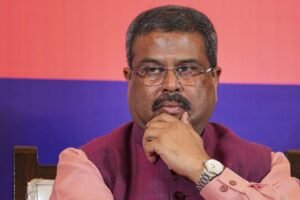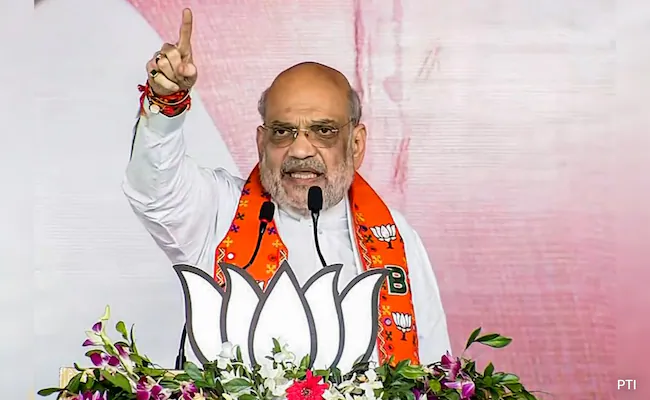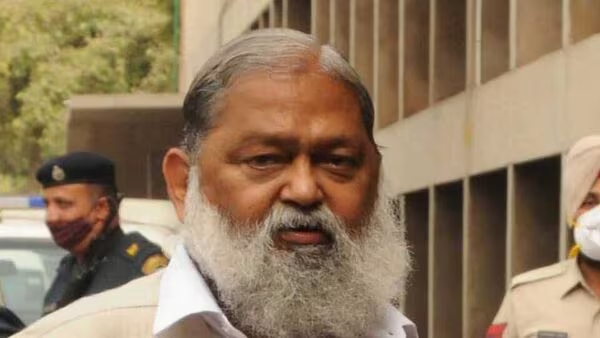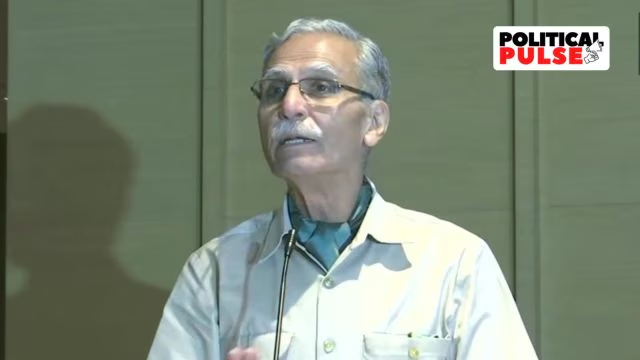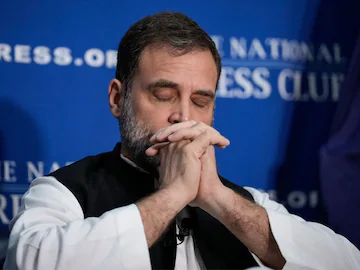BJP plans to attract the tribal community and avoid alienating its own supporters who perceive the Uniform Civil Code as a violation of their cultural rights by excluding tribals from its implementation.
Amit Shah, the Union Home Minister, has promised to introduce the Uniform Civil Code (UCC) in Jharkhand, aligning with the BJP’s agenda. This development signifies a significant progression towards a universal implementation of the UCC across the country, with a notable provision for tribal communities to address their apprehensions regarding this controversial legislation.
Shah’s address not only featured a commitment to implement a proposed Uniform Civil Code (UCC) with exemptions for tribals but also pledged to revisit the Sarna religious code, a demand that has long been pending among the tribal community.
Why has the BJP specifically selected Jharkhand for this significant declaration? What is the underlying communication intended for the tribal communities nationwide, encompassing the Northeast region as well?
Exploring Jharkhand as the next arena for the BJP to advocate for the Uniform Civil Code (UCC) following Uttarakhand underscores a deliberate move towards states with notable Muslim communities, where the Hindu electorate holds sway. Now, let’s delve into the demographic landscape of Jharkhand.
Could the demographic bonus outweigh the Uniform Civil Code?
Based on official statistics, the state comprises approximately 4% Christians, 15% Muslims, and a significant 30-32% tribal community, with the remainder being Hindus. This diverse demographic, particularly the Hindu and tribal populations, holds considerable sway in the state.
The introduction of the Uniform Civil Code (UCC) has the potential to spark contentious discussions. It marks the inaugural instance of a senior minister, particularly the Union home minister, revealing plans for the code’s enforcement in a state following an electoral victory.
The Uniform Civil Code (UCC) appears to be a strategic maneuver aimed at uniting Hindu voters, especially those who prioritize religious consistency, in light of accusations regarding demographic shifts and uncontrolled migration, in a country where Muslims make up about 15 percent of the population. By emphasizing the need for “equal laws for all” and juxtaposing Muslim personal laws as archaic or non-secular, the BJP’s position taps into sentiments of preserving Hindu identity and fostering national unity within its support base.
The party aims to soothe tensions within the community by excluding tribal communities from changes that would impact their traditional societal structure, inheritance practices, and marriage customs.
Crafting a dual-focused approach
Around 34 Scheduled Tribe communities exist in Jharkhand. Shah suggests that approximately 30% of the state’s tribal population will be excluded from the Uniform Civil Code (UCC), serving two specific purposes.
The BJP’s nuanced strategy is evident initially, recognizing the importance of tribal autonomy, potentially mitigating any discontent from its previous supporters in the state – the tribal groups.
In addition, it skillfully avoids causing upheaval within its supporter base by addressing the concerns of populations who could perceive the UCC as encroaching upon their unique cultural rights. By framing the matter as primarily impacting Hindus and Muslims, the party accentuates sentiments within the Hindu-majority community.
In addition to the strategies highlighted earlier, it’s crucial to note that this move also serves to distance the ruling Jharkhand Mukti Morcha (JMM) in the state. The JMM holds contrasting political and ideological views compared to the BJP’s stance on cultural nationalism. Introducing the Uniform Civil Code (UCC) in a state not governed by the BJP is a strategic move to challenge the Opposition to take a stand. They are compelled to either align with the call for “reform,” risking alienation of their Muslim support base, or oppose it and risk being portrayed as advocates of special privileges, potentially impacting Hindu voters negatively.
Trial Test: Examine Execution
In light of the ongoing UCC debate, a key aspect under scrutiny pertains to the anticipated responses and demonstrations from tribal groups. These communities have consistently emphasized their autonomy and traditional societal structures. Shah, during his address, proactively acknowledged the apprehensions of the tribal communities, possibly marking a trial phase for the party as it navigates challenging circumstances.
Shah’s choice to exclude 30% of the population from Uniform Civil Code (UCC) regulations in a region where tribal communities hold significant sway suggests a calculated political move. This move aims to cultivate trust among the tribal populace by acknowledging and honoring their autonomy and unique cultural traditions.
The strategy presented here also tackles the issues expressed by tribal groups in the Northeast region, who have strongly opposed the Uniform Civil Code (UCC) out of concerns regarding potential cultural encroachment, resulting erosion, and the risk of losing their self-governing capabilities. By providing exemptions, it serves as a form of guarantee, portraying the BJP as a political entity that acknowledges and safeguards tribal privileges, all the while advocating for a more comprehensive uniform code.


